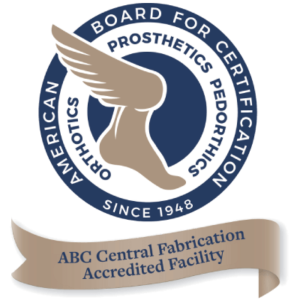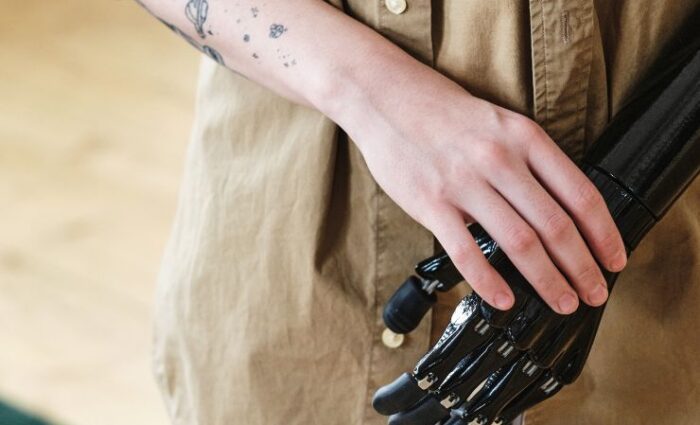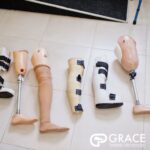Understanding the Psychological Impact of Amputation: Supporting Patients Through the Prosthetic Journey
Losing a limb is a profound life change that affects more than just the physical body. It brings emotional and psychological challenges that can impact every aspect of a patient’s life. For patients and their family members, understanding these challenges is the first step toward healing. This blog aims to shed light on the psychological impact of amputation and provide guidance on how to support loved ones through the prosthetic journey.
The Emotional Challenges of Amputation
Amputation often triggers a complex mix of emotions. Patients may experience grief over the loss of a limb, similar to grieving a loved one. Feelings of denial, anger, and sadness are common. There may also be anxiety about the future, concerns about mobility, and worries about how others perceive them. Body image issues can arise, leading to lowered self-esteem and social withdrawal. It’s important to acknowledge these feelings as a natural response to a significant life event. Suppressing emotions can hinder the healing process, so open communication is key. Family members should create a safe space for patients to express their emotions without fear of judgment.
The Role of Mental Health in Recovery
Mental health is a critical component of recovery after an amputation. Depression and anxiety can affect a patient’s willingness to participate in rehabilitation and adapt to using prosthetics. Addressing mental health early can improve outcomes and enhance the quality of life. Professional mental health services, such as counseling or therapy, can provide patients with coping strategies to manage their emotions. Techniques like cognitive-behavioral therapy can help reframe negative thoughts and promote a positive outlook. Incorporating mental health support into the recovery plan is as important as physical therapy.
The Importance of Emotional Support
Emotional support from loved ones plays a significant role in a patient’s recovery. Family and friends can offer encouragement, help with daily tasks, and provide a listening ear. Simple gestures like spending time together or engaging in enjoyable activities can boost a patient’s mood. Support doesn’t always mean having all the answers. Sometimes, just being present is enough. Encouraging patients to set small, achievable goals can help them regain a sense of control and accomplishment.
Navigating the Prosthetic Journey with Grace Prosthetic Fabrication
Choosing the right prosthetic provider is essential for a successful transition. Grace Prosthetic Fabrication is committed to helping patients regain independence through high-quality prosthetics. Their experienced team works closely with patients to design custom solutions that meet their specific needs. At Grace Prosthetic Fabrication, the focus is not only on the physical aspect but also on supporting patients emotionally. They understand the challenges of adapting to a prosthetic limb and provide compassionate care throughout the process. With advanced technology and personalized service, they help patients navigate the prosthetic journey with confidence.
Post-Care and Support Groups
After receiving a prosthetic, post-care is crucial for long-term success. Regular check-ups ensure that the prosthetic fits properly and functions as intended. Patients may need adjustments as their body changes over time. Support groups offer additional assistance by connecting patients with others who have similar experiences. Sharing stories and advice can provide comfort and practical tips for daily living. These groups can be found through hospitals, rehabilitation centers, or organizations like Grace Prosthetic Fabrication.
How Family Members Can Help
Family members are an integral part of the recovery team. Educating themselves about amputation, prosthetics, and the rehabilitation process enables them to provide better support. Attending medical appointments and therapy sessions can help them understand the challenges their loved one faces. Encouraging independence is also important. While it’s natural to want to help, allowing patients to do tasks on their own fosters confidence and self-reliance. Celebrating milestones, no matter how small, reinforces progress and boosts morale.
Contact Grace Prosthetic Fabrication for Custom Prosthetic Fabrication
The journey after an amputation is filled with emotional and physical hurdles. However, with the right support system and resources, patients can overcome these challenges and lead fulfilling lives. Understanding the psychological impact is essential for providing meaningful assistance. Grace Prosthetic Fabrication stands by patients every step of the way, offering not just prosthetics but a partnership in recovery. By focusing on both the physical and emotional aspects of healing, they help patients and their families navigate the prosthetic journey with grace and strength.






